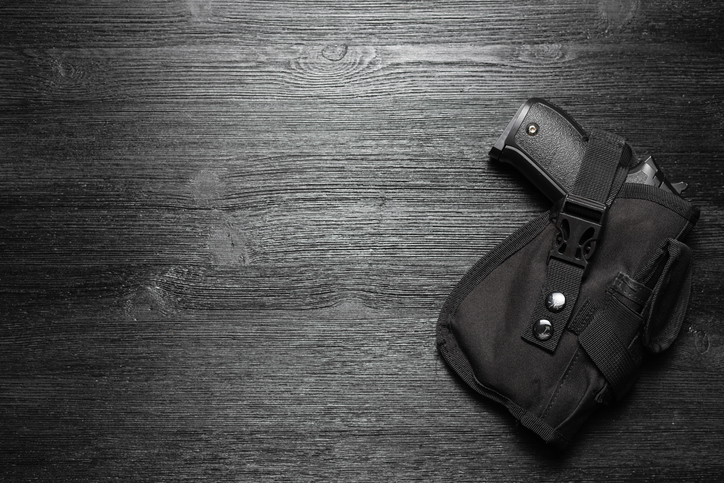Study: First-Time Gun Ownership Increases Suicide Death Risk in Cohabitants
 Examining the safety consequences of bringing a handgun into the home
Examining the safety consequences of bringing a handgun into the home
In the United States, we have the Second Amendment right to keep and bear arms. It’s always important to remember that this right comes with responsibilities, and one of those responsibilities is to be mindful of all the safety risks associated with a gun in the home.
Unfortunately, new research puts those risks in stark relief. A new study out of Northeastern University found that a woman’s risk of death by suicide increases by 40% when someone else in her previously gun-free home becomes a first-time handgun owner.
The study focused on adult women who lived with someone — whether a spouse, partner, or roommate — who brought at least one handgun into the home for the first time. None of the 330,000 women in the study owned guns themselves.
While these findings are troubling, they are also consistent with what we know about suicide more broadly: it’s usually an impulsive decision, and access to lethal means is strongly correlated with the risk of death.
Having access to a gun can make all the difference
One of the most common myths about suicide is that someone who is suicidal will eventually find a way, no matter what. If that person didn’t reach for a gun, this line of thinking goes, then they would have reached for something else. That line of thinking glosses over a critical detail: guns are far and away the most lethal commonly used suicide method. About 90% of firearm suicide attempts result in death, which is 50 times higher than the likelihood of death by other common methods like pills and cutting.
“If you reach for pills in that moment of vulnerability, you’re so much more likely to have a second chance at life than if you reached for a gun,” said Northeastern professor Matt Miller, who led the study. Miller added that “more than 90% of the people who survive a suicide attempt don’t go on to die by suicide thereafter. So if you prevent someone from reaching for a gun, you’ve probably saved their life, not only today but also in the long run.”
In short, while having a gun in the home may not increase the risk of a suicide attempt, it dramatically increases the risk that an attempt will end in death. Keeping a gun out of the hands of a suicidal person greatly increases the chances that they will survive, and most people who survive a suicide attempt do not go on to die by suicide. It’s an impulsive decision, and in time, that impulse will pass. Eliminating access to guns is a critical part of safety in those vulnerable moments.
Responsible gun ownership and secure storage of firearms are part of suicide prevention
None of this means that people should never own guns or keep them in their homes. What it means is that lawful gun owners need to think carefully about all the safety implications, including the suicide risk of their housemates, before they decide to bring a gun into the home. Most people who legally buy a gun do so to protect themselves and their households, but the data on suicide shows that this can tragically backfire.
In addition, if a gun is to be kept in the home, it must be safely stored. Indeed, this may be one reason first-time gun ownership is so dangerous: inexperienced gun owners may not know how to store their weapons safely. A study published in the Journal of Epidemiology & Community Health found that storing weapons locked and unloaded significantly reduces the risk of suicide by firearm. Again, this is consistent with what we know about suicide: it’s usually an impulsive decision that often involves reaching for whatever method is close at hand. Without ready access to an unlocked, loaded firearm, suicide by gun becomes much less likely.
Families who have lost loved ones to suicide have legal recourse
These findings on gun ownership speak to a universal truth: suicide is preventable, and many suicides are unfortunately the result of negligence or malpractice. The Law Offices of Skip Simpson has the experience and knowledge to investigate the circumstances of your loved one’s death by suicide and advise you on your legal rights and options. We are based in Texas and serve families nationwide. If you or anyone you know has lost someone to suicide, contact attorney Skip Simpson today.




